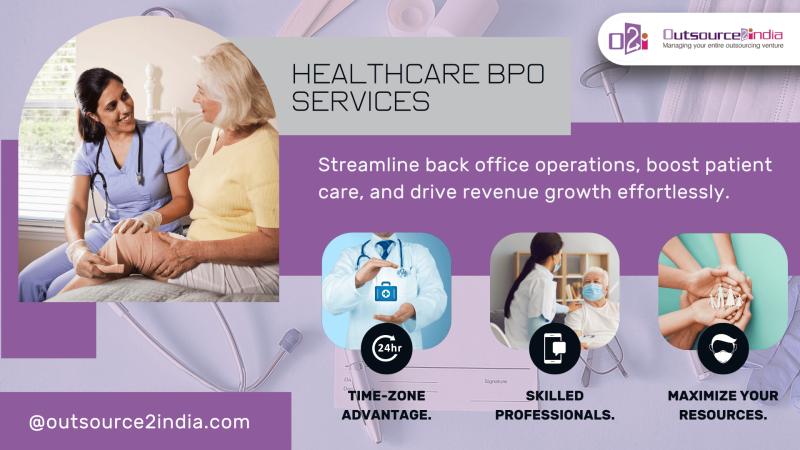Understanding the Essentials of Healthcare BPO Procedures

Summary: Learn how Healthcare BPO reduces costs and enhances patient care by optimizing billing, claims, and data management.
BPO services benefit the modern healthcare industry's contemporary operation and service delivery. Healthcare outsourcing deals with non-core functions, which are outsourced to specialized providers so that healthcare organizations can pay full attention to their operations. This blog post explains the basics and core importance of such Healthcare BPO services.
What is Healthcare BPO?
Healthcare business process outsourcing means hiring an external party to perform administrative and operational responsibilities. The primary administrative tasks of a healthcare organization's provider would be medical billing, coding, claims processing, patient scheduling, and data entry. This makes the administrative part lighter, thus boosting efficiency and ensuring the provider's compliance effectively.
Key Procedures in Healthcare BPO
Here are some key procedures in Healthcare BPO services that help healthcare organizations streamline their operations and enhance efficiency.
- Claims Processing
Healthcare organizations will always have a steady cash flow thanks to outsourcing this procedure, which will reduce errors and accelerate payments. Finding insurance information, creating a claim, sending it to the insurance company, and looking into the claim are all steps in the claim processing procedure.
- Patient Scheduling and Appointment Management
Healthcare BPO solutions handle patient appointments, cancellations, and reminders, significantly improving time management for healthcare personnel and patient satisfaction.
- Data Entry and Management
Accurate and timely data entry is especially important to comply with electronic health records (EHR). BPO providers have well-organized patient information, which is also stored in compliance with standards such as HIPAA.
- Telehealth Support Services
BPO's services have evolved to keep up with the times. Among them are the provision of scheduling consultations with doctors, managing their telehealth accounts, and customer support for their services.
- Medical Billing and Coding
Medical billing and coding services are the most prominent gaps in the revenue cycle of healthcare organizations, which involve the operational cycle of the functioning of healthcare. Insurance companies reimburse the providers based on the accuracy of the coding process done at the timely submission of provided services. Healthcare BPO uses standard coding systems, like ICD-10 and CPT, during this process to avoid any errors and delays.
Benefits of Healthcare BPO
Below are the benefits of healthcare BPO that make it a vital solution for optimizing operations and improving patient care.
- Cost Efficiency
Outsourcing thus makes it feasible to avoid considerable costs in establishing and maintaining administration staff and infrastructure. Cost efficiencies so gained free up resource allocation to activities related to patient care and primary functions.
- Enhanced Focus on Core Activities
They can, thus, spend more time and resources on high-quality medical services and improve patient outcomes by outsourcing non-core activities.
- Access to Skilled Professionals
BPOs employ professionals in medical billing, coding, and all administrative duties so practitioners can have peace of mind that their practice management processes are adequately handled.
- Improved Operational Efficiency
BPOs deploy technology-aided, streamlined processes to get work done, eliminating errors and speeding cycle time.
- Scalability
In-house administrative demands increase as healthcare organizations grow. BPO services offer scalable solutions that can be modified to the changing needs of the organizations.
Best Practices for Effective Healthcare BPO
Here are the best practices to benefit from healthcare BPO to the fullest:
- The Right Provider: Select BPO providers that have popular track records, certifications, and health process experience because they can provide the best-suited services.
- Regulatory Compliance: Ensure this provider complies with industry standards and operational and data security regulations, such as HIPAA.
- Clear SLA: Establish service level agreements to set expectations concerning performance, timelines, and quality.
- Complete Communication: Enjoy regular communication with the BPO provider to address any issue and ensure organizational goals are aligned.
- Technology Adoption: Partner with other providers to co-develop advanced tools and technologies that enhance process efficiency and accuracy.
Post Your Ad Here

Comments